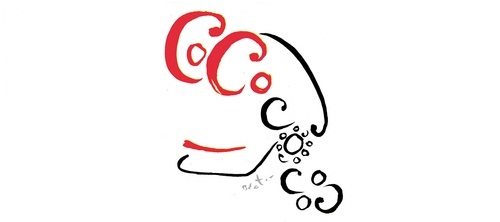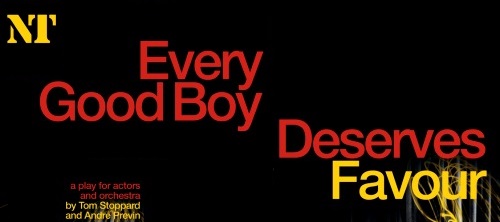Pas de biographie disponible.
Compositeur Musique additionelle Librettiste Parolier Metteur en scène Chorégraphe Producteur création Producteur version

Musical
Musique: André Previn • Paroles: Alan Jay Lerner • Livret: Alan Jay Lerner • Production originale: 2 versions mentionnées
Dispo: Résumé Synopsis Génèse Liste chansons
Genèse: Theatre producer Frederick Brisson originally had optioned Chanel's life for his wife Rosalind Russell, but Russell had developed acute arthritis, making it difficult for her to function. That meant another leading lady with star quality needed to be found. Irene Selznick suggested Katharine Hepburn, who initially scoffed at the idea of appearing in a musical but agreed to work with former MGM vocal coach Roger Edens for ten days. Following an audition in Selznick's suite at The Pierre Hotel, Hepburn felt comfortable enough to mull seriously the proposition, and was further convinced to accept the offer after meeting Chanel. Lerner had assured the designer his book would cover only the early years of her life and career, and she was distressed when the plan was jettisoned to accommodate the older star. The highly fictionalized book and score underwent massive revisions and were far from complete when Hepburn concluded filming on The Madwoman of Chaillot, at which time she was scheduled to begin work on the show, and Coco was postponed a season while its creators worked on it. The six-week rehearsal period finally began in September 1969. Cecil Beaton's set proved to be a complicated piece of machinery that frequently malfunctioned and was difficult for the cast to maneuver, and the final scene required a troublesome coordination of mirrors, platforms, runways, and flashing lights. Hepburn insisted the theater's thermostat be set at 60 degrees and the exterior doors left open, and most of the cast became ill due to the unusually cold fall weather. After 40 previews, the Broadway production opened on December 18, 1969 at the Mark Hellinger Theatre, where it ran for 329 performances. Directed by Michael Benthall and choreographed by Michael Bennett, the cast included René Auberjonois, George Rose, Michael Allinson, David Holliday, Bob Avian, Jon Cypher, Suzanne Rogers, Graciela Daniele, Ann Reinking, and Gale Dixon. Danielle Darrieux replaced Hepburn eight months into the run, but without the drawing power of a major star the poorly reviewed show closed two months later. Hepburn was scheduled to star in a West End production, but when the Theatre Royal, Drury Lane proved to be unavailable she refused to consider other venues and the project was abandoned. She headed the cast of the US national tour, which opened in Cleveland on January 11, 1971, the day after Chanel's death, which the star acknowledged at the final curtain call. She continued with the tour through June, when it ended at the Dorothy Chandler Pavilion in Los Angeles. Although reviews in most cities were mediocre, it played to sold-out houses everywhere. Despite its financial success, executives at Paramount Pictures, which had financed the original Broadway production - at $900,000, the most expensive show in Broadway history at the time - in exchange for the cast album and film rights, opted not to transfer Coco to the big screen. Coco was produced as a staged concert 42nd Street Moon in San Francisco in April and May 2008, starring Andrea Marcovicci in the title role. The production played for a total of 16 performances. It was directed by Mark D. Kaufmann and choreographed by Jayne Zaban. Marcovicci revisited the role in September 2010 for the show's first New York revival as part of the York Theatre Company's Musicals in Mufti.
Résumé: Set between early autumn of 1953 and late spring of 1954, fashion designer Coco Chanel, after fifteen years of retirement, decides to return to the world of haute couture and reopen her Paris salon. With her new collection derided by the critics, she faces bankruptcy until buyers from four major American department stores - Saks Fifth Avenue, Bloomingdale's, Best & Company, and Ohrbach's - place orders with her. She becomes involved with the love life of one of her models, and flashbacks utilizing filmed sequences recall her own past romantic flings. Adding humor to the proceedings is a highly stereotypical rude gay designer who tries to impede Chanel's success.[2] The finale is a fashion show featuring actual Chanel designs from 1918 to 1959.
Création: 18/12/1969 - Mark Hellinger Theatre (Broadway) - représ.

Musical
Musique: André Previn • Paroles: Livret: Tom Stoppard • Production originale: 2 versions mentionnées
Dispo: Résumé Commentaire Génèse
Genèse: Because of the difficulties in staging a play that requires a full orchestra in addition to the cast of actors, the play is rarely performed. Its 1977 premiere was staged at the Royal Festival Hall in London as part of Queen Elizabeth's Silver Jubilee. That performance featured Ian McKellen (Alexander), John Wood (Ivanov) and Patrick Stewart (the Doctor), as well as the London Symphony Orchestra conducted by Previn. In 1978 the play was produced for television by the BBC. The producer was Mark Shivas and direction was shared by Trevor Nunn and Roger Bamford. The filming was undertaken at a live performance at Wembley Conference Centre in April 1978, conducted by Previn. The cast for this production was Ian McKellen (Alexander Ivanov), Ben Kingsley (Ivanov), Frank Windsor (the Doctor), John Woodvine (the Colonel), Barbara Leigh Hunt (the Teacher) and James Harris[disambiguation needed] (aka Jim Harris[disambiguation needed] and James Pickering) (Sacha). Following its BBC production, the play ran at the Mermaid Theatre in London during the summer and autumn of 1978. Cast changes included John Carlisle taking on the role of the Colonel from John Woodvine, who played Alexander Ivanov, Ian McDiarmid (Ivanov), Rowena Cooper (the Teacher) and Rhys McConochie (the Doctor). The role of Sacha was played by a number of young actors including Harris again, and Anthony Robb. Every Good Boy Deserves Favour was the last production at the old Mermaid before it was demolished and redeveloped. Patrick Stewart also appeared in a 1992 production (produced by Charles Johanson for the Orange County Symphony) which toured to four US cities. The cast included his Star Trek: The Next Generation colleagues Gates McFadden, Jonathan Frakes, Brent Spiner and Colm Meaney. The play was performed in 2002 in Philadelphia as a collaboration between the Wilma Theater and the Philadelphia Orchestra, taking advantage of the fact that Previn had reorchestrated the score for chamber orchestra, making smaller productions possible. In 2008 it was performed at The Town Hall in New York City by the Boston University College of Fine Arts, directed by Jim Petosa and conducted by Neal Hampton, as part of their Incite Festival. This production was revived (director, Jim Petosa, conducted by William Lumpkin) and played the Boston University Theatre in October, 2009 and then again for two performances at Maryland's Olney Theatre Center in metropolitan Washington, D.C. In July 2008 The Chautauqua Theater Company[1] at the Chautauqua Institute in western New York state, performed the play in conjunction with the Chautauqua Symphony Orchestra for the 25th Anniversary Gala of the theater company. Directed by Ethan McSweeny with Conductor Timothy Muffitt [2]; Michael Emerson as Alexander and Brian Murray as Ivanov. London's National Theatre mounted a revival in January 2009, starring Toby Jones and featuring the pioneering orchestra Southbank Sinfonia.[3] "Every Good Boy Deserves Favour" was performed at Carnegie Hall by the Toledo Symphony Orchestra on May 7, 2011 as part of the "Spring for Music" Festival.[4] The performance was directed by Cornel Gabara and the speaking cast consisted of Pete Cross, David DeChristopher, Yazan "Zack" Safadi, Kevin Hayes, Actor (Colonel), Benjamin Pryor, and Pamela Tomassetti. The piece was the second half of a program performed by the Toledo Symphony under the guidance of Conductor Stefan Sanderling and with participation of the Glacity Theatre Collective. The two-part evening was composed of Shostakovich's Symphony No. 6 in B minor, Op. 30 and the play,and marked the Toledo Symphony's debut at Carnegie Hall, as well as the premiere of the full orchestra version of "Every Good Boy Deserves Favour" in New York.
Résumé: The play concerns a dissident, Alexander Ivanov, who is imprisoned in a Soviet mental hospital, from which he will not be released until he admits that his statements against the government were caused by a (non-existent) mental disorder. In the hospital he shares a cell with a genuinely disturbed schizophrenic, also called Ivanov, who believes himself to have a symphony orchestra under his command. Alexander receives visits from the Doctor and from a Colonel in the KGB. Meanwhile, his son, Sacha, is seen in a school classroom with a teacher who attempts to convince him of the genuineness of his father's illness.
Création: /7/1977 - Royal Festival Hall (Londres) - représ.